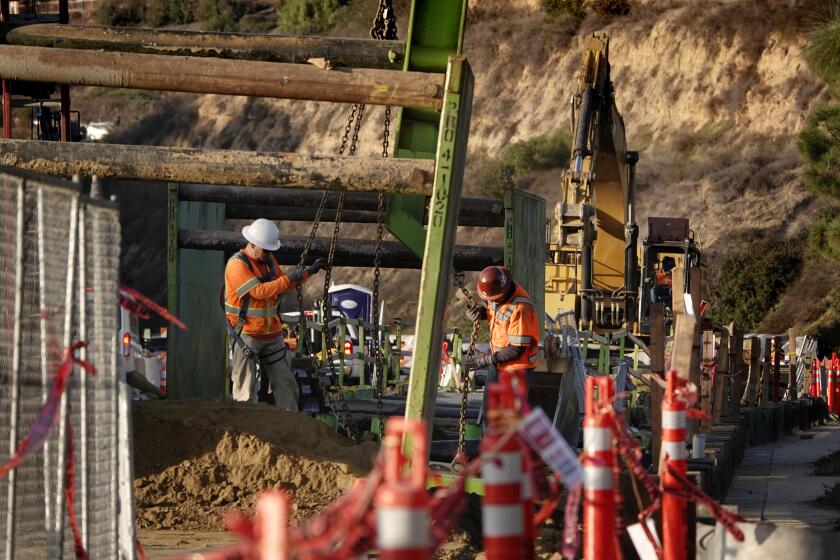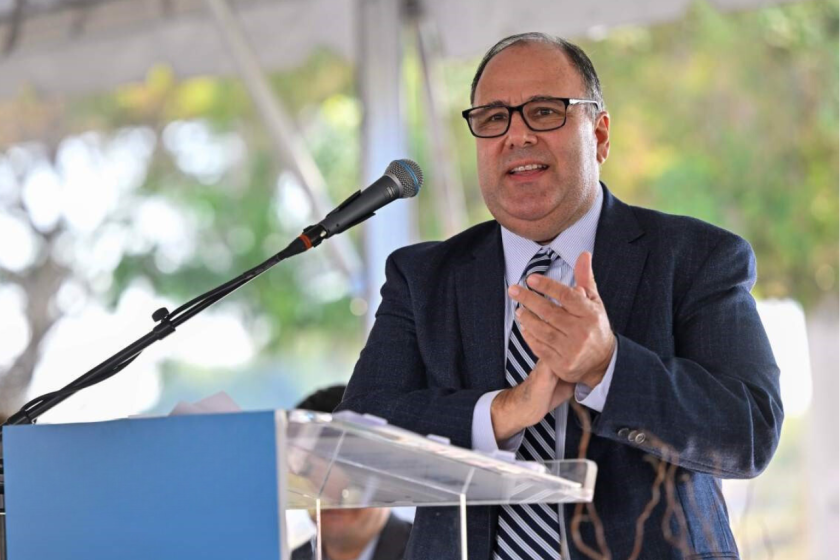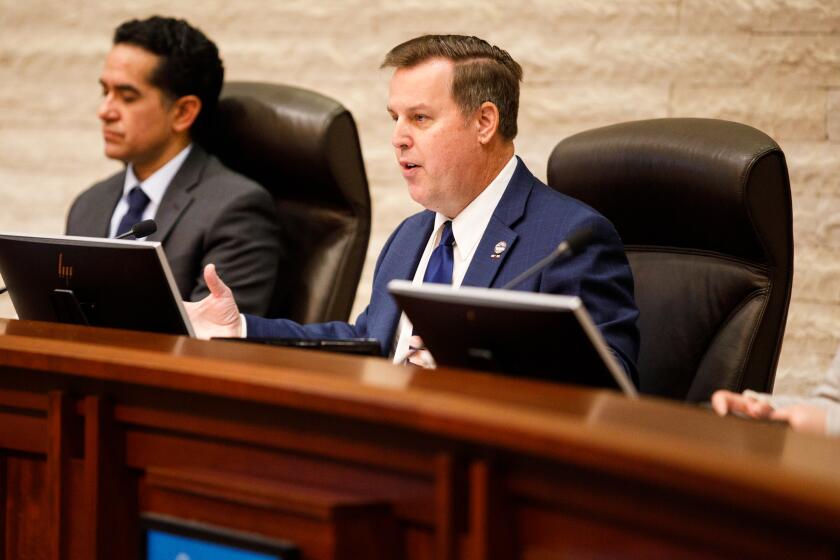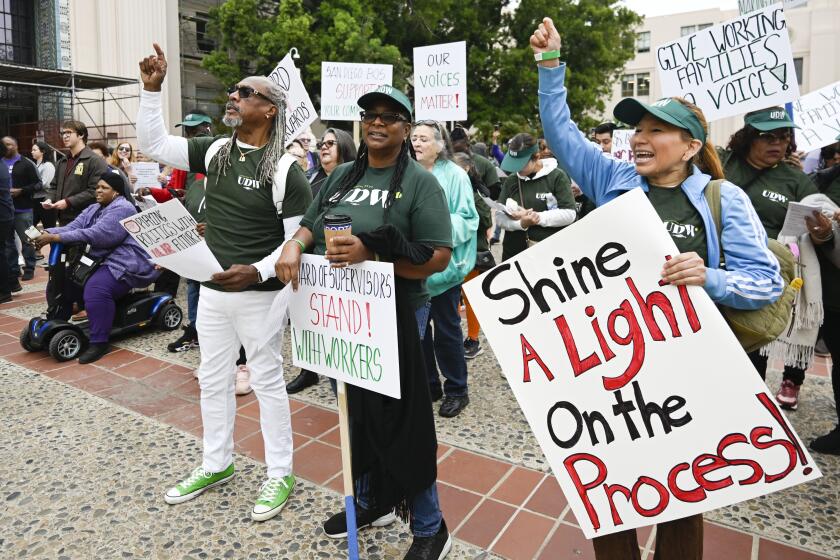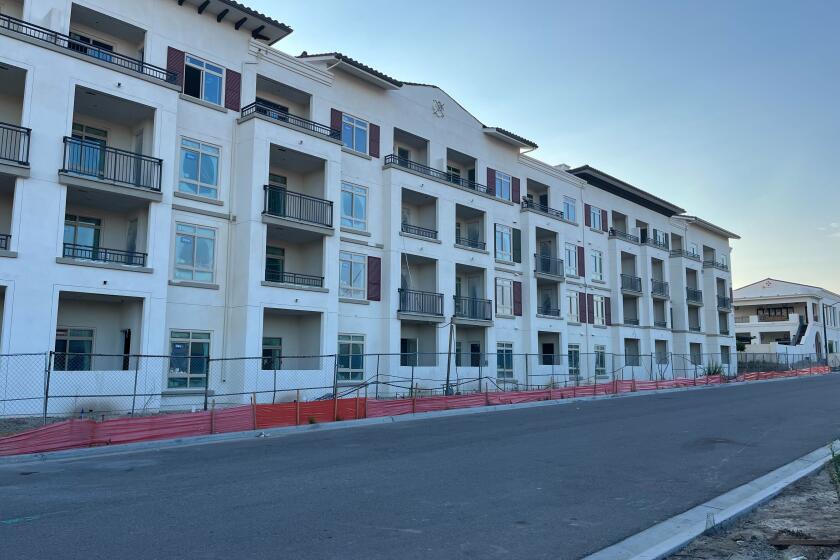San Diego just OK’d a sweeping new labor pact to govern all big city projects. Here’s what it will do.
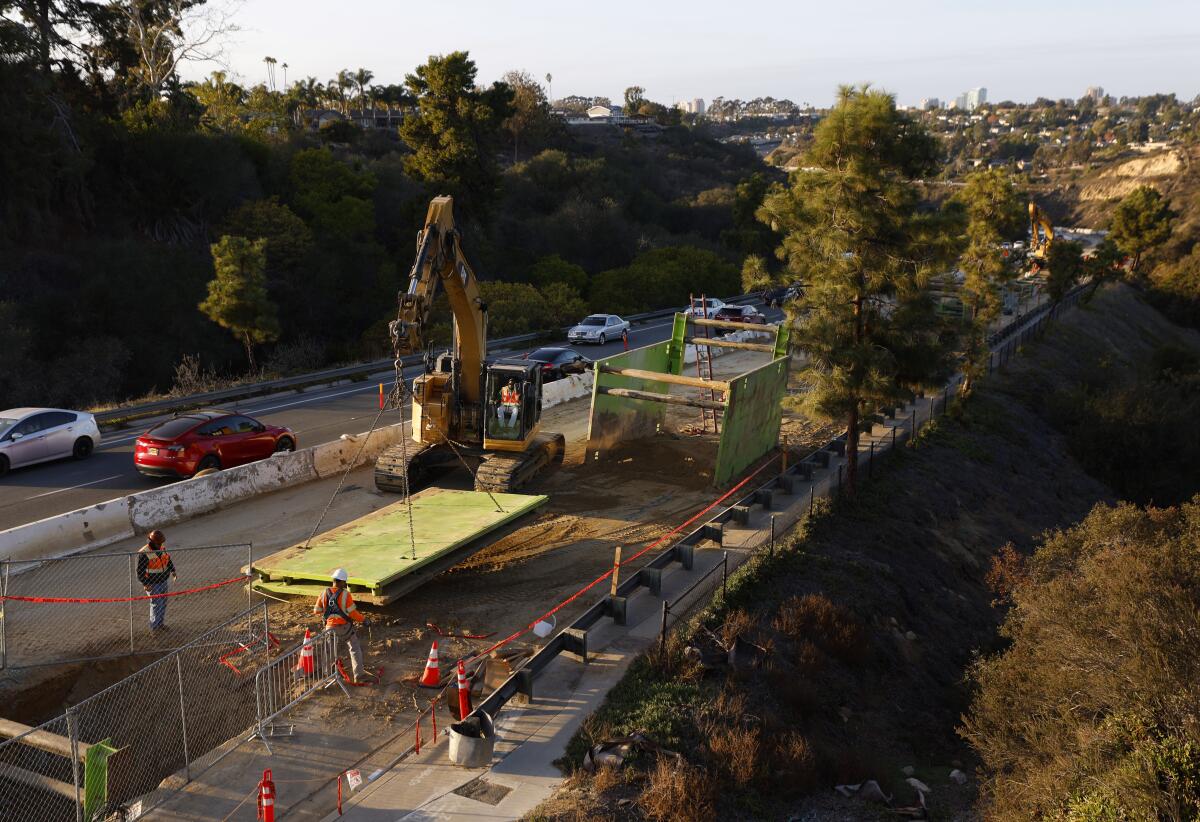
The new project labor agreement sets wages, safety protocols and regulations for contractors and all their subcontractors and sets goals for hiring disadvantaged local workers
San Diego made some fundamental and impactful changes Tuesday to how it builds large construction projects like fire stations, libraries, sewer pipelines and bridges.
The City Council approved a union-friendly project labor agreement that will soon apply to every city project over $1 million, in a move that could make projects more expensive but will also boost wages for local construction workers.
The PLA sets wages, safety protocols and regulations for contractors and all their subcontractors. It also sets goals for hiring disadvantaged local workers like former foster children, homeless people and veterans.
Council members hailed the pact as something that will reduce project delays and prevent labor strife for the city while simultaneously helping enlarge San Diego’s middle class.
“It’s a really important and historic day for San Diego,” said Council President Sean Elo-Rivera, contending the deal shifts power toward ordinary city residents.
“For decades, San Diego was a test lab for what comes when a greedy, conservative establishment runs a big city,” he said. “It doesn’t work. This place is too expensive, folks aren’t paid enough, and more and more people are wondering how the hell they will continue to live in San Diego.”
Critics, including a group representing most of the city’s non-union contractors, said PLAs cost taxpayers money and freeze out small firms that are often owned by people of color.
“Project labor agreements increase costs on projects, exclude qualified apprentices like our own and force workers to pay for union benefits they will likely never receive,” said Dustin Steiner, vice president of government affairs for the local chapter of Associated General Contractors.
The San Diego County Taxpayers Association also opposed the deal, contending that blanket requirements like San Diego’s new citywide PLA tie the hands of city management and make projects less efficient.
But the council approved the deal unanimously, and Mayor Todd Gloria hailed it for prioritizing the employment of local residents for relatively well-paid construction jobs.
San Diego plans to create pact with labor unions for construction projects that would apply citywide
A project labor agreement sets wages and rules for contractors on city projects. Some cities work out PLAs on a project-by-project basis, but Mayor Todd Gloria wants one consistent set of rules.
Some cities work out PLAs on a project-by-project basis, but Gloria prioritized a citywide pact because he and local construction unions say they want one consistent set of rules.
San Diego is the second city in the county to approve a blanket PLA. National City approved a similar deal in November, but San Diego’s pact is far more significant because the city is so much larger.
National City will now require project labor agreements, with some exceptions, for public projects with a construction budget of $1 million or more.
San Diego is expected to award 111 contracts for construction projects during the ongoing fiscal year that are estimated to cost about $635 million total. City officials say that volume of work is typical for a year for San Diego.
A citywide PLA was made possible in San Diego when city voters in November 2022 approved Measure D, lifting a ban on city PLAs voters had approved a decade earlier.
Councilmember Raul Campillo, who spearheaded Measure D, praised the citywide PLA, which is a seven-year deal that takes effect July 1 and runs through 2031.
“It protects taxpayer dollars by eliminating costly delays that can be caused by labor conflict or shortages,” he said. “Unions are a force for good, and our building trades unions are among the very best in what they do.”
Councilmember Jennifer Campbell stressed that the unions agree in the 58-page deal, which took many months to negotiate with several local labor unions, that they can’t strike no matter their grievances.
“There’s give and take on both sides,” she said.
Councilmember Marni von Wilpert said anyone skeptical of PLAs should examine the ongoing, $3 billion upgrades at San Diego International Airport, which are governed by a PLA.
Von Wilpert said the airport deal has allowed construction to be handled smoothly and effectively despite challenges like keeping an active runway open amid all the work.
“There’s no way that project would be successful without a project labor agreement,” she said.
But the Associated General Contractors, which represents 900 firms, said PLAs raise costs and lead to fewer bidders on projects.
“Recently, there has been a proliferation of PLAs at the local level and we are already seeing their negative impact on priorities such as affordable housing, economic opportunity and diversity,” Steiner said in a letter to the council this week.
He said the San Diego Association of Governments, which itself has a new PLA, awarded two recent contracts that he said were both at least 25 percent more expensive than estimates by SANDAG engineers.
“This is the promise of a PLA — fewer bidders, higher prices,”Steiner said. “That is until, like we have seen with the San Diego Unified School District PLA, the engineer’s estimates climb higher and higher to account for the increased costs associated with PLAs.”
The city’s independent budget analyst also raised concerns about the new deal, which IBA policy analyst Erin Noel called a “significant policy shift.”
While Noel said PLAs can have benefits, she said the comprehensive requirements could repel some contractors.
“We could see fewer bids if firms are not able to or choose not to participate, which could potentially increase project costs,” she said.
The PLA will also require the city to create a new bureaucracy to ensure compliance with its rules. Noel suggested the city would likely need five to eight workers, including one highly paid program manager.
To avoid pushing small firms out of bidding for city contracts, the PLA applies only to projects of $5 million or more during its first two years. The threshold drops to $1 million after that.
The PLA also includes carve-out provisions that allow contracting firms owned by disadvantaged people to bid on projects even if they don’t meet some criteria.
Local construction firms representing nearly every part of the construction process, from electricians to sheet metal workers, spoke in favor of the PLA.
Carol Kim, general manager of the San Diego Building and Construction Trades Council, said San Diego’s PLA is a major milestone that will mean brighter futures for many.
“This PLA won’t erase the injustices of the past, but it can write a better and more equitable future,” she said.
Get Essential San Diego, weekday mornings
Get top headlines from the Union-Tribune in your inbox weekday mornings, including top news, local, sports, business, entertainment and opinion.
You may occasionally receive promotional content from the San Diego Union-Tribune.
